A F.A.S.T. food market
May 27, 2008
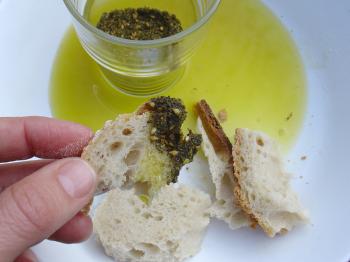
Gifted organic olive oil and za’atar from Ein Hud, an unrecognised village in Israel
Sustainability issues aren’t only about green, sometimes they’re even more fundamental than that. Food and food systems are an integral part of that story because food and agricultural policy is commonly used for strategic purposes. Malkit Shoshan is an Israeli architect and the founder/director of F.A.S.T. (Foundation of A Seamless Territory) dedicated to exposing the global abuses of ideological planning, as found in Israel’s unrecognised villages like Ein Hud and in offering alternative solutions.
In June 2004 F.A.S.T. held an international architecture competition for a masterplan for the village of Ein Hud and will be opening it’s cultural centre with festivities this September 2008. Shoshan asked me if I would investigate the possibility of initiating a farmers’ market in Ein Hud and to see about developing some artisanal products to sell in it. The market would ostensibly sell local agricultural products like olive oil, herbs, medicinal herbs, honey and dates, and would give a welcome boost to the local economy. To entice me Malkit gave me a sample of Ein Hud’s raw product line, za’atar (the quintessential Arab condiment mixture of marjoram, sumac, sesame seeds, and salt), fruity olive oil and melouchiya (a dried herb concoction that I’m still figuring out how to use).
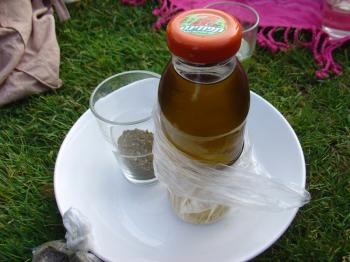
Vernacular packaging of local products from Ein Hud
From F.A.S.T. “The story of Ein Hud represents the history of the State of Israel, as an embodiment of two parallel societies, two parallel planning systems, one building, the other destroying. Ein Hod – Ein Hud is the story of two villages, each representing a different reality and completely opposite living conditions. The story of Ein Hud, south of Haifa, is a typical example of the complex reality of ideological planning in Israel and how such planning contributes to the Israeli-Palestinian tragedy.”
- Further reading:
F.A.S.T. (Foundation of A Seamless Territory)Occupied Olive Tree Territories - Culiblog weighs in on the politics of agriculture
A Subjective Atlas of Palestine
Seamless Israel, visualise a country without unrecognised territories
Israelis also sought to forest the bare mountains and hills as quickly as possible. The Jewish National Fund started to plant pine trees because they grow quickly. Unfortunately, the trees were not suited to the climate and started to die after a few decades.
Territoria Magazine - pdf download
One Land Two Systems Newspaper - download the pdf
and recipes or pinings on za’atar:
The Jewish Daily Forward on za’atar. No appropriation here.
Wikipedia is so smart, please add to it.
debra at 0:23 | | post to del.icio.us


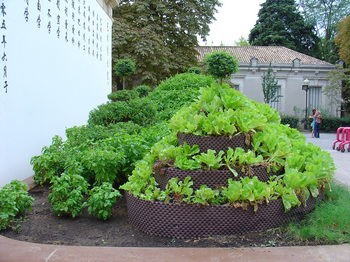
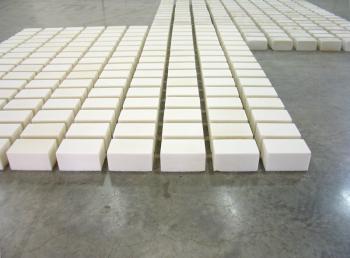
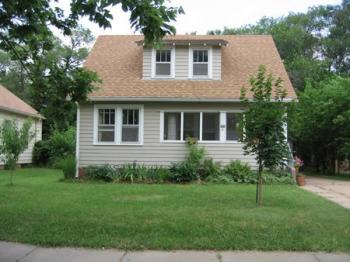



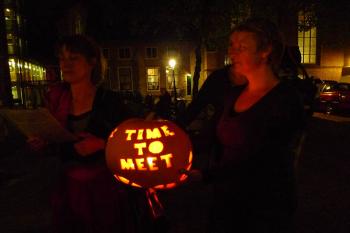










Your work seems so creative and interesting. Kind of a dream job.
Comment by elarael — June 2, 2008 @ 6:44
Was just blog hopping and thought I’d say hello. You have a nice blog here. Love the writing :)
Comment by Maryann — June 3, 2008 @ 1:54
It’s getting time for some allotment-entries, no?
Comment by Kristi — June 13, 2008 @ 14:09